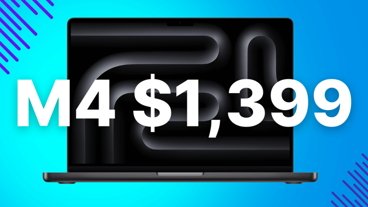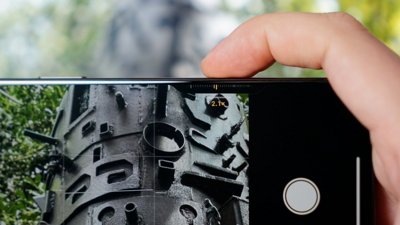Samsung Electronics has added iPhone to a rapidly expanding list of consumer electronics devices from Apple Inc. for which it supplies the primary SoC, AppleInsider has learned.
Meanwhile, those same people say wireless IC maker Infineon has also captured a significant piece of iPhone, asserting itself as the primary supplier of both baseband and RF chips. Specific chip models were not identified.
For Samsung, the iPhone win represents its third for an Apple electronics device in less than six months. Last September, the firm was awarded key roles in the second-generation of both the iPod nano and iPod shuffle, for which it supplies the primary SoC and audio decoder chips, respectively.
Samsung's seat in iPhone is also symbolic of an evolving bond and level of trust with the traditionally tight-lipped Apple, whose concerns over intellectual property and commonality reportedly drove it to seek out the electronics maker as a sole supplier of ICs for its small-form-factor electronics devices.
Word of Samsung's part in iPhone arrives on the heels of several contradictory reports from industry executives, who in interviews over the past two weeks have pegged a variety of different firms as the primary chip supplier for the device.
It all started with a spokesperson from Apple Germany, who on the day after iPhone was unveiled told Reuters that the central processing unit was "from Intel." Within hours, Intel vehemently denied the claim, informing the media outlet it was "not providing the silicon inside the iPhone."
A subsequent identification came from an Intel Italy exec, who pinned the chip as an Xscale — an integrated circuit developed by Intel and later sold to Marvell. For one reason or another, all appear to have missed the mark.
The identification of Samsung and Infineon in their respective iPhone roles also corroborates a "Likely iPhone supplier list" compiled by Morgan Stanley analyst Rebecca Runkle several weeks before the device's debut. In it, the analyst added that Marvell would supply the WiFi chip, Sharp the display, and Sony the battery.
In the December report, Runkle also singled out Samsung as the primary supplier of 4-gig and 8-gig NAND flash memory with support from secondary supplier Toshiba.
Of all analysts who weighed in on the iPhone ahead of its introduction, the Morgan Stanley analyst was nearly spot-on in all of her predictions, including its various technical specifications.
 Kasper Jade
Kasper Jade






-m.jpg)






 Charles Martin
Charles Martin
 Christine McKee
Christine McKee
 Malcolm Owen
Malcolm Owen

 Sponsored Content
Sponsored Content

 Amber Neely
Amber Neely










17 Comments
Good news. Samsung seems to be pushing the WiMax pretty hard.
Well.. so are all the hiss problem with those latest nano part of samsung problem with them not any good at making audio chips?
Well.. so are all the hiss problem with those latest nano part of samsung problem with them not any good at making audio chips?
1.) What hiss problem?
2.) Hiss would not be caused by the SoC. The SoC runs the OS, which amongst other things converts compressed music to PCM. This PCM stream is then converted to analogue by a DAC. iPods use Wolfson DACs. Any hiss is likely to be a PCB layout issue.
This would figure, since Samsung is probably the world leader in SoC and SiP technologies. I actually didn't think it would be Samsung, however, since in the past they've shown a pretty strong intent NOT to pile in additional graphics processors in their SoCs. I'd be interested to see exactly what cores it's packing.
Upon investigation, there's no currently commoditized Samsung CPU core that I think would be suitable for the iPhone. The best they seem to have is the aging S3C2440. They do, however, market this video co-processor which may have been bundled in an SoC/SiP with other parts. In this case, I don't see how the iPhone is anything less than a two-chip system.
They're all kind of right IMHO.
Intel owned the StrongARM processor design on which the XScale is based before they sold it to Marvell. Samsung is a licensee of the ARM processor also.
Samsung has the technology to build SoC's with an ARM core and additional circuitry as required by their partner (Apple) so IMHO they were the favourite all along since they're also used in the iPods to provide one platform and reduce the chips in the iPod.
ARM chips in phones in particular are quite common and recently the Symbian phones have been running of single chip ARM platforms that integrate both the main CPU and the radio chips into one core to reduce power consumption. I'm quite surprised Apple have another chip in there for radio.